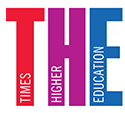In a digital era, academics’ time would be far better spent on assessment, curation and mentoring, says Terry Young
The pandemic has not been a source of change so much as a catalyst for developments that have been under discussion for decades. An example is that while content has become so accessible that almost anything about almost any topic is available to any student with a browser, it took lockdown to confront us with the question of what that means for university teaching.
It is true that many artists are fighting for better monetisation of their entertainment offerings, while some news outlets exist behind paywalls for the same reason. However, news and a lot of entertainment is still free to anyone who wants it. And information-rich content – art, books, manuscripts, research – continues to go up online freely, at scale and often at the insistence of educational sponsors. Universities could have resisted by protecting all their content and fighting all open access initiatives, but that ship sailed some time ago.
If the realisation that content is free is shocking, it is because we in universities imagine that our main purpose is to deliver content: we write our business models around it and pin our reputations to it. Lecturers believe that their performances in the lecture theatre are critical to students’ later success, even though most could get more from the reading list.
The pandemic has shown us that students regard tuition without the campus experience as an inferior product, prompting demands for tuition fee discounts. Still, it would take suicidal courage to tell students (and the government) that a qualification, a network and an experience was all or most of what they were buying.
Or would it? Whatever happens regarding content and online delivery, for the foreseeable future, there are three things that humans will have to do for and with students in any educational contract – and for which their institutions may legitimately charge.
The second irreducibly human undertaking is curating content: finding good material and training students to find and evaluate their own. There is a question about the extent to which a syllabus based on freely available content can be branded and marketed as adding enough value to be worth paying for, but curation skills will be core skills for all lifetime learning. Even so, we must become much more efficient at curating learning material to free up time for the other interpersonal interactions discussed here. Once students have access to curated material, they can explore with relatively little support.
The third thing for which human input is required is mentoring in its widest sense. This includes demonstrating how the discipline shapes practice; easing students away from simply absorbing content or (worse still) fixating on marks; and discussions to teach them to synthesise the knowledge to adapt to new situations. All these require a human to model, coach, cajole and challenge.
I have begun to realise that the idea that content is free is so radical that most people cannot really get their heads around it. Some believe that even if they “get it”, nobody else will. However, sooner or later, someone will: they will deliver better and more fun education. And they will change the sector.
After a life in innovation – from contract R&D to leading academic research programmes – I know how hard it is for new ideas to effect change. Years ago, I chatted to the head of a prestigious radiology department about his journey from traditional radiology using X-ray films to digital radiology, with its production of shareable images. Two takeaways stay with me: first, when I asked why he hadn’t hired experts to help, he replied: “Sometimes you have to invest your own sweat equity.” Second, after realising that his colleagues would always find excuses to sneak on to the old equipment, he came up with the perfect solution: cut off the plugs.
Both these nuggets are relevant to digital learning. The available expertise is untested, and while the pandemic had the potential to cut the plugs off, many academics felt the wheels had come off instead.
Whatever the institutional resistance, it is time to cut off the plugs. Academics must refuse to produce any more content. It is worth almost nothing, but their time – spent in better ways – is close to priceless.
Terry Young is an emeritus professor at Brunel University London and the founder of Datchet Consulting. He worked for GEC and Marconi before serving as professor of healthcare systems at Brunel from 2001 to 2018.

0 Comments